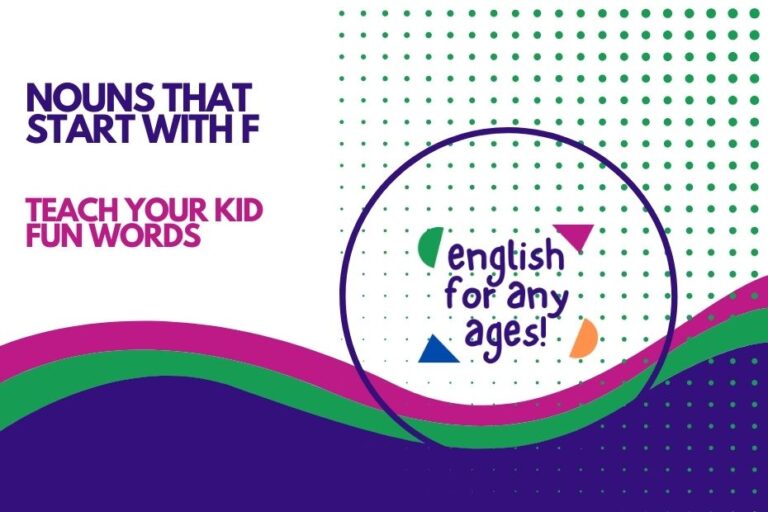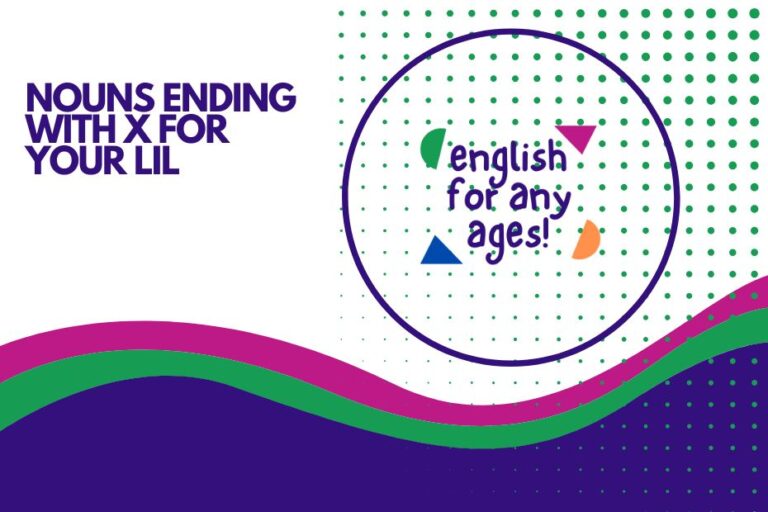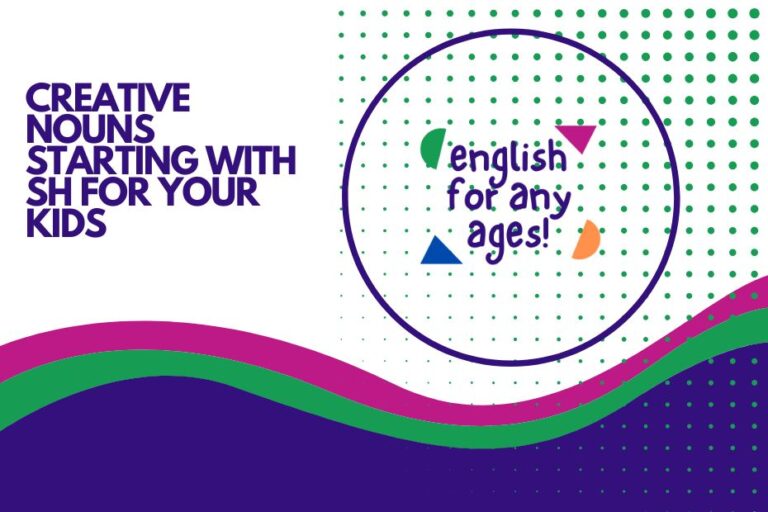Mastering “Announced”: A Comprehensive Grammar Guide
The word “announced” is a fundamental verb form in English, crucial for conveying information, plans, and decisions. Understanding its various uses and grammatical nuances is essential for clear and effective communication.
This article provides a detailed exploration of “announced,” covering its definition, structure, usage rules, common mistakes, and advanced applications. Whether you’re a beginner or an advanced learner, this guide will equip you with the knowledge and practice needed to confidently use “announced” in your writing and speech.
This comprehensive guide is designed for English language learners of all levels, from beginners seeking to grasp the basics to advanced speakers aiming to refine their grammatical precision. By the end of this article, you will have a solid understanding of how to use “announced” correctly and effectively in a variety of contexts.
Table of Contents
- Definition of “Announced”
- Structural Breakdown
- Types and Categories of “Announced” Usage
- Examples of “Announced” in Sentences
- Usage Rules for “Announced”
- Common Mistakes with “Announced”
- Practice Exercises
- Advanced Topics
- Frequently Asked Questions (FAQ)
- Conclusion
Definition of “Announced”
“Announced” is the past tense and past participle form of the verb “to announce.” The verb “to announce” fundamentally means to make a public or formal declaration about a fact, intention, or decision. It implies conveying information, often of some significance, to an audience, large or small. The act of announcing can be done verbally, in writing, or through other means of communication.
The word “announce” is a regular verb, meaning its past tense and past participle are formed by adding “-ed” to the base form. It functions as a transitive verb when it takes a direct object (e.g., “She announced the winner.”) and as an intransitive verb when it does not (e.g., “The speaker announced.”).
It is a versatile verb used in a wide array of contexts, from personal interactions to formal news reports.
Structural Breakdown
The structure of sentences using “announced” depends on whether it is used transitively or intransitively. Here’s a breakdown:
- Transitive Use: Subject + Announced + Direct Object (e.g., The company announced their profits.)
- Intransitive Use: Subject + Announced (e.g., The town crier announced.) – Often followed by a prepositional phrase or adverb to add detail (e.g., The town crier announced loudly.)
- Passive Voice: Subject + Was/Were + Announced + (by + Agent) (e.g., The results were announced by the committee.)
Understanding these basic structures helps in constructing grammatically correct and clear sentences using “announced.” The inclusion of additional elements like adverbs or prepositional phrases can further enrich the sentence and provide more context.
Types and Categories of “Announced” Usage
Transitive Use
When “announced” is used transitively, it takes a direct object. The direct object is the thing being announced.
This is the most common usage of “announced.” The subject performs the action of announcing on the object.
Example: The president announced the new policy.
Intransitive Use
When “announced” is used intransitively, it does not take a direct object. In this case, the focus is on the act of announcing itself, rather than what is being announced.
This usage is less common and often requires additional context to be meaningful.
Example: The speaker announced, pausing for effect.
Passive Voice
In the passive voice, the subject receives the action of being announced. The focus shifts from the person or entity doing the announcing to the thing being announced.
The agent (the one doing the announcing) is often introduced with the preposition “by,” but it can be omitted if it’s unimportant or unknown.
Example: The election results were announced by the electoral commission.
Reported Speech
“Announced” is frequently used in reported speech to convey what someone said or declared. In reported speech, the original statement is often changed slightly, particularly in tense and pronoun usage, to reflect the change in perspective.
Example: She announced that she would be resigning from her position.
Examples of “Announced” in Sentences
Here are several examples of “announced” used in various ways, categorized for clarity.
Transitive Verb Examples
The following table provides examples of “announced” used as a transitive verb. Notice how each sentence includes a direct object that receives the action of the verb.
| Sentence | Direct Object |
|---|---|
| The company announced record profits for the quarter. | Record profits |
| The teacher announced the test results to the class. | The test results |
| The government announced a new economic stimulus package. | A new economic stimulus package |
| The airline announced a delay in the flight due to bad weather. | A delay in the flight |
| The celebrity announced her engagement on social media. | Her engagement |
| The museum announced the acquisition of a rare artifact. | The acquisition of a rare artifact |
| The coach announced the starting lineup for the game. | The starting lineup |
| The university announced a new scholarship program for international students. | A new scholarship program |
| The detective announced his findings to the press. | His findings |
| The doctor announced the patient’s diagnosis with sensitivity. | The patient’s diagnosis |
| The radio station announced the winner of the contest. | The winner of the contest |
| The chef announced the special of the day. | The special of the day |
| The manager announced the upcoming staff meeting. | The upcoming staff meeting |
| The principal announced the school’s new safety guidelines. | The school’s new safety guidelines |
| The author announced the release date of her new book. | The release date of her new book |
| The band announced their upcoming tour dates. | Their upcoming tour dates |
| The scientist announced a breakthrough in cancer research. | A breakthrough in cancer research |
| The politician announced his intention to run for office. | His intention to run for office |
| The judge announced the verdict in the case. | The verdict in the case |
| She announced her departure from the company. | Her departure from the company |
| They announced their decision to move abroad. | Their decision to move abroad |
| The project manager announced the project’s completion. | The project’s completion |
Intransitive Verb Examples
The following table illustrates “announced” used intransitively. Note that these sentences do not have a direct object and often include adverbs or prepositional phrases to provide more context.
| Sentence | Additional Context |
|---|---|
| The speaker announced clearly. | Adverb: clearly |
| The town crier announced loudly in the square. | Adverb: loudly, Prepositional phrase: in the square |
| The announcer announced with enthusiasm. | Prepositional phrase: with enthusiasm |
| He announced, his voice booming. | Participial phrase: his voice booming |
| She announced before anyone could interrupt. | Adverbial clause: before anyone could interrupt |
| The herald announced, signaling the start of the ceremony. | Participial phrase: signaling the start of the ceremony |
| The president announced during the press conference. | Prepositional phrase: during the press conference |
| The news anchor announced somberly. | Adverb: somberly |
| The referee announced, ending the match. | Participial phrase: ending the match |
| The guide announced, pointing to the landmark. | Participial phrase: pointing to the landmark |
| The auctioneer announced sharply. | Adverb: sharply |
| The director announced confidently. | Adverb: confidently |
| The judge announced gravely. | Adverb: gravely |
| The captain announced calmly to the passengers. | Adverb: calmly, Prepositional phrase: to the passengers |
| The priest announced solemnly during the service. | Adverb: solemnly, Prepositional phrase: during the service |
| The CEO announced boldly at the shareholders’ meeting. | Adverb: boldly, Prepositional phrase: at the shareholders’ meeting |
| The broadcaster announced live on television. | Adverb: live, Prepositional phrase: on television |
| The commander announced sternly to the troops. | Adverb: sternly, Prepositional phrase: to the troops |
| The receptionist announced politely to the visitor. | Adverb: politely, Prepositional phrase: to the visitor |
| The host announced cheerfully to the crowd. | Adverb: cheerfully, Prepositional phrase: to the crowd |
Passive Voice Examples
This table demonstrates “announced” used in the passive voice. Note how the subject is receiving the action, and the agent (if mentioned) is introduced with “by.”
| Sentence | Agent (if present) |
|---|---|
| The winner was announced by the judges. | The judges |
| The new policy was announced by the CEO. | The CEO |
| The flight delay was announced on the airport monitors. | (Implied: by the airport authorities) |
| The acquisition was announced in a press release. | (Implied: by the company) |
| The game’s cancellation was announced due to the weather. | (Implied: by the organizers) |
| The scholarship program was announced by the university. | The university |
| The findings were announced at the scientific conference. | (Implied: by the scientists) |
| The patient’s recovery was announced by the doctor. | The doctor |
| The contest winner was announced live on the radio. | (Implied: by the radio station) |
| The special of the day was announced by the chef. | The chef |
| The staff meeting was announced via email. | (Implied: by the management) |
| The new safety guidelines were announced to the students. | (Implied: by the school administration) |
| The book’s release date was announced on the author’s website. | (Implied: by the author/publisher) |
| The tour dates were announced on the band’s official page. | (Implied: by the band/management) |
| The breakthrough was announced in a scientific journal. | (Implied: by the scientists) |
| The intention to run for office was announced publicly. | (Implied: by the politician) |
| The verdict was announced in the courtroom. | (Implied: by the judge) |
| Her departure was announced by the company spokesperson. | The company spokesperson |
| Their decision to move was announced to family and friends. | (Implied: by them) |
| The project’s completion was announced by the team lead. | The team lead |
Reported Speech Examples
The following table provides examples of “announced” used in reported speech. Note the change in tense and pronouns from the original statement to the reported version.
| Original Statement | Reported Speech |
|---|---|
| “We have won the championship!” | They announced that they had won the championship. |
| “I will be resigning tomorrow.” | She announced that she would be resigning the next day. |
| “The meeting is postponed until next week.” | He announced that the meeting was postponed until the following week. |
| “We are launching a new product.” | The company announced that they were launching a new product. |
| “I am getting married!” | She announced that she was getting married. |
| “The concert is sold out.” | They announced that the concert was sold out. |
| “We are offering a discount.” | The store announced that they were offering a discount. |
| “I have finished the project.” | He announced that he had finished the project. |
| “We are moving to a new city.” | They announced that they were moving to a new city. |
| “I will be giving a presentation.” | She announced that she would be giving a presentation. |
| “The results will be announced tomorrow.” | They announced that the results would be announced the next day. |
| “I need help with the project.” | He announced that he needed help with the project. |
| “We are celebrating our anniversary.” | They announced that they were celebrating their anniversary. |
| “I am going on vacation.” | She announced that she was going on vacation. |
| “The event will start soon.” | They announced that the event would start soon. |
| “I have some good news.” | He announced that he had some good news. |
| “We are expanding our business.” | They announced that they were expanding their business. |
| “I am starting a new job.” | She announced that she was starting a new job. |
| “We have reached an agreement.” | They announced that they had reached an agreement. |
| “I am taking a break.” | He announced that he was taking a break. |
Examples in Different Tenses
Here are examples demonstrating how “announce” can be used in different tenses:
| Tense | Example Sentence |
|---|---|
| Simple Present | The news anchor announces the headlines every hour. |
| Present Continuous | The company is announcing its new product line at the conference. |
| Simple Past | The president announced a state of emergency. |
| Past Continuous | They were announcing the results when the power went out. |
| Present Perfect | The university has announced a new scholarship program. |
| Past Perfect | By the time we arrived, they had already announced the winner. |
| Future Simple | The CEO will announce the company’s plans tomorrow. |
| Future Continuous | They will be announcing the new policy next week. |
| Future Perfect | By next year, they will have announced all the changes. |
Usage Rules for “Announced”
Subject-Verb Agreement
Ensure that the verb “announce” agrees with its subject in number. For example:
- Correct: The company announces its earnings. (Singular subject)
- Correct: The companies announce their earnings. (Plural subject)
Tense Consistency
Maintain consistent tense within a sentence or paragraph. If you start in the past tense, generally continue in the past tense, unless there’s a logical reason to switch.
- Correct: She announced that she was leaving, and everyone was surprised.
- Incorrect: She announced that she is leaving, and everyone was surprised.
Prepositions after “Announced”
While “announce” doesn’t typically require a specific preposition directly after it, prepositions are often used in prepositional phrases to add context to the announcement. Common prepositions used in conjunction with “announced” include “at,” “in,” “on,” and “to.”
- The winner was announced at the ceremony.
- The news was announced in a press release.
- The announcement was made on social media.
- The changes were announced to the employees.
Common Mistakes with “Announced”
Here are some common mistakes to avoid when using “announced”:
| Incorrect | Correct | Explanation |
|---|---|---|
| She announced to the news. | She announced the news. | “Announce” is a transitive verb and needs a direct object, not a prepositional phrase in this context. |
| The winner was announce. | The winner was announced. | The past participle form “announced” is required in the passive voice. |
| He announced that he will go. | He announced that he would go. | In reported speech, the tense often shifts to the past. |
| They announce the results yesterday. | They announced the results yesterday. | Use the past tense “announced” to indicate a past action. |
| She announced for her resignation. | She announced her resignation. | “Announce” is a transitive verb and needs a direct object, not a prepositional phrase in this context. |
Practice Exercises
Exercise 1: Fill in the Blanks
Fill in the blanks with the correct form of “announce.”
| Question | Answer |
|---|---|
| The company ___________ its quarterly earnings yesterday. | announced |
| The president will ___________ the new policy tomorrow. | announce |
| The winner was ___________ at the awards ceremony. | announced |
| They have ___________ their engagement. | announced |
| She is going to ___________ her decision later today. | announce |
| The school ___________ new safety measures. | announced |
| The results will be ___________ next week. | announced |
| He ___________ his retirement after 30 years of service. | announced |
| The museum ___________ the discovery of a rare artifact. | announced |
| The airline ___________ a flight cancellation due to weather. | announced |
Exercise 2: Error Correction
Identify and correct the errors in the following sentences.
| Incorrect Sentence | Correct Sentence |
|---|---|
| He announce his resignation yesterday. | He announced his resignation yesterday. |
| The news was announce by the reporter. | The news was announced by the reporter. |
| She announced to her departure. | She announced her departure. |
| They announced that they will moving. | They announced that they would be moving. |
| The winner will announce tomorrow. | The winner will be announced tomorrow. |
| The company announce a profit. | The company announced a profit. |
| He announced for the new job. | He announced the new job. |
| The date was announce last week. | The date was announced last week. |
| She announced to the crowd. | She announced to the crowd. (This is grammatically correct if she announced *something* to the crowd, using it intransitively) |
| The results announce late. | The results were announced late. |
Exercise 3: Sentence Construction
Create sentences using “announced” based on the given prompts.
| Prompt | Example Sentence |
|---|---|
| A company announces a merger. | The company announced a merger with its competitor. |
| A teacher announces a test. | The teacher announced a surprise test for the next day. |
| A politician announces their candidacy. | The politician announced their candidacy for president. |
| A doctor announces a patient’s recovery. | The doctor announced the patient’s remarkable recovery. |
| A team announces their victory. | The team announced their victory with great fanfare. |
| A singer announces a new album. | The singer announced the release of their highly anticipated new album. |
| A school announces a holiday. | The school announced an unexpected holiday due to the weather. |
| A parent announces exciting news. | The parent announced exciting news about a new baby on the way. |
| A chef announces a special menu. | The chef announced a special five-course tasting menu for the weekend. |
| A host announces an award winner. | The host announced the award winner with great enthusiasm. |
Advanced Topics
Formal vs. Informal Usage
While “announced” is appropriate in both formal and informal contexts, the surrounding language and tone may differ. In formal settings, such as news reports or official statements, the language is typically more precise and objective.
In informal settings, such as casual conversations, the language may be more relaxed and personal.
Formal: “The corporation announced a restructuring plan to improve efficiency.”
Informal: “She announced that she’s finally going on that trip she’s been planning.”
Nuances of Meaning
The word “announced” can carry subtle nuances depending on the context. It can imply authority, formality, or even a sense of importance.
For instance, saying “He announced his decision” suggests a more deliberate and significant act than saying “He said he decided.” The choice of synonyms like “stated,” “declared,” or “revealed” can further refine the intended meaning.
Consider the difference between these sentences:
- The CEO announced the merger. (Implies authority and formality)
- The CEO stated the merger. (More neutral, less emphasis on formality)
- The CEO revealed the merger. (Suggests something previously hidden)
Frequently Asked Questions (FAQ)
- What is the difference between “announce” and “declare”?
“Announce” generally refers to making something known publicly or formally, while “declare” often implies a more emphatic or official statement, often with legal or formal implications. For example, you might announce a winner, but you declare a state of emergency.
- Can “announced” be used in the imperative mood?
No, “announced” is the past tense and past participle form. The imperative form is “announce,” as in “Announce the winner!”
- Is it correct to say “announce about”?
No, “announce about” is incorrect. “Announce” is a transitive verb and takes a direct object directly, without the need for “about.” You would say, “Announce the news,” not “Announce about the news.”
- What are some synonyms for “announced”?
Synonyms for “announced” include: stated, declared, proclaimed, revealed, disclosed, notified, and communicated.
- How do I use “announced” in indirect questions?
While “announced” is typically used in statements, you can use it to report a question indirectly. For example: “He announced that he was unsure whether the event would proceed.”
- What is the difference between “announced” and “reported”?
“Announced” implies the act of making something known for the first time, often by an authority. “Reported” means to convey information that has already been made known, often by a journalist or news source.
- Can “announced” be used with a gerund?
Yes, “announced” can be followed by a gerund phrase, but it’s less common. For example: “They announced postponing the event.” It’s more common to use a “that” clause: “They announced that they were postponing the event.”
- Is it correct to say “It was announced that…”?
Yes, “It was announced that…” is a common and grammatically correct construction. It’s often used to introduce information without specifying who made the announcement, emphasizing the information itself.
Conclusion
Mastering the use of “announced” is crucial for effective and clear communication in English. This guide has provided a comprehensive overview of its definition, structural breakdown, various usages, common mistakes, and advanced applications.
By understanding the nuances of “announced,” from its transitive and intransitive forms to its role in reported speech, you can confidently incorporate it into your writing and speaking.
Remember to practice regularly and pay attention to the context in which you use “announced.” By applying the rules and examples provided in this article, you can avoid common mistakes and enhance your overall grammatical accuracy. Keep exploring the intricacies of the English language, and you’ll continue to improve your communication skills.
With consistent effort, you’ll be able to use “announced” and other grammatical concepts with ease and precision.






